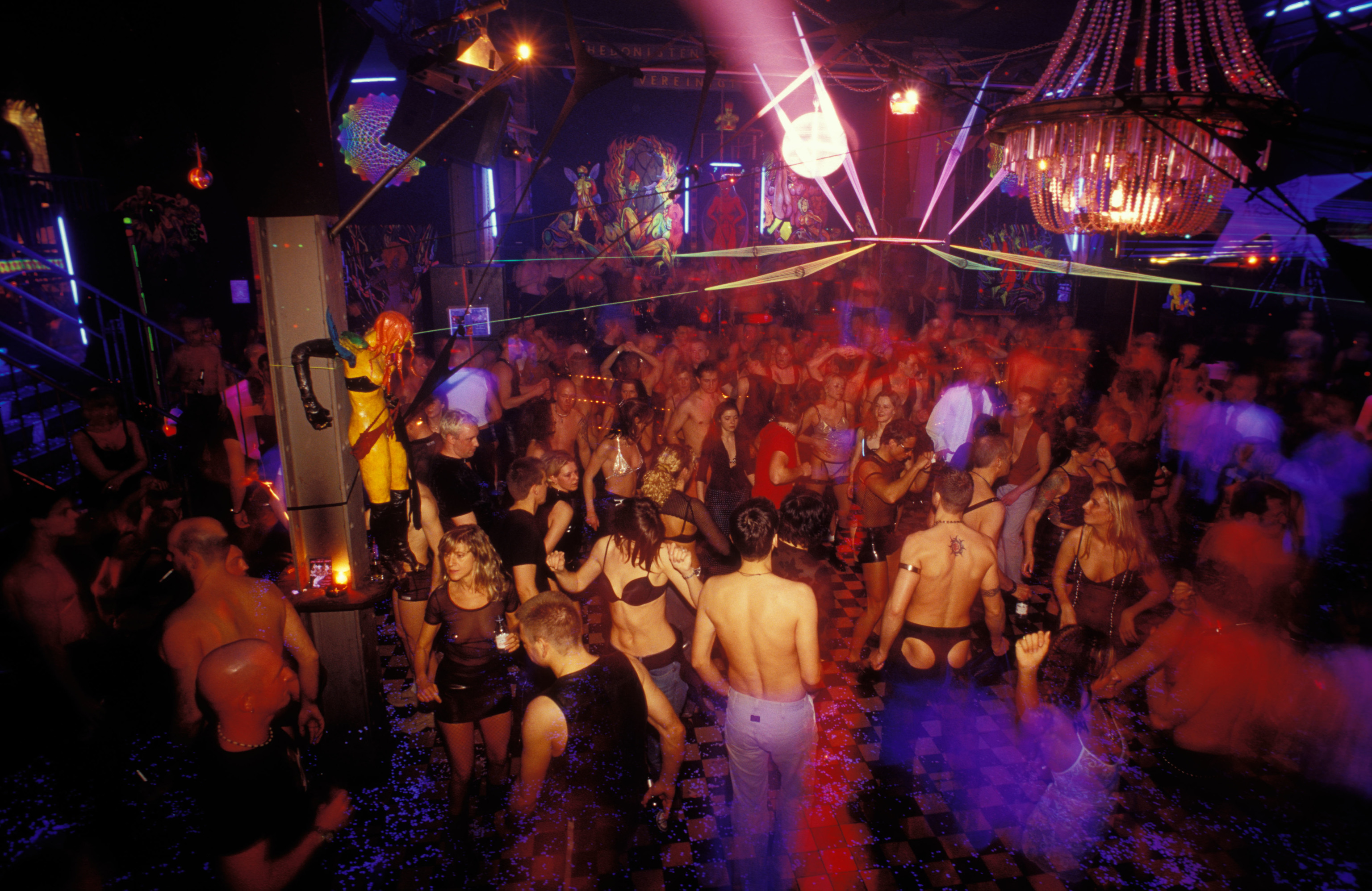Berghain Party: Dance from Friday to Sunday in the dark fortress of German techno
Interview The baddest nightclub bouncer in the world
In December 2021, a group of DJs gathered under the name of
Rave the Planet
began the relevant procedures for UNESCO to agree to recognize, in the near future, the Berlin club scene as an intangible heritage of humanity, as it has already done. They are the Finnish sauna, the Holy Week processions or the Mexican mariachis.
If that were to happen, venues such as
Berghain
or
Club der Visionäre
- a small space on the edge of a canal presided over by a huge weeping willow tree in which houses are played - could enjoy the status of cultural centers of intangible value, and it would force the authorities Germans to ensure their protection.
The reasoning of Rave the Planet -whose spokespersons are historic techno artists such as Alan Oldham or Dr. Motte, who was the founder of the mythical rave
Love Parade-
was based on a historical sequence: in the 90s, the first Electronic music clubs in Berlin, such as
Tresor
or
E-Werk
, were meeting places for young people from both sides of the recently torn down wall, and their inclusive nature paved the way for a fraternal all-Germany gathering.
At the same time, around the clubs a new free, creative and
volcanic
Berlin was articulated that ended up becoming one of the great cultural capitals of Europe.
As of 2000, going
clubbing
in Berlin was a more popular leisure activity than visits to the
Pergamon
museum - the emergence of
low cost airlines
made it easier to go for a weekend for little money and enjoy the lax opening hours of the
nightclubs
-, and that also brought with it the massive move of artists of all kinds to the city.
The rents were cheap, the legislative pressure from the city council relatively low, and the world showcase highly attractive.
For many young people, going to Berlin was a kind of rite of passage.
The Kit Kat Club, a legend of the Berlin scene.
But from 2010, that success began to affect the city: rents began to rise, the old neighborhoods in the East -
Mitte, Prenzlauer Berg, Friedrichshain
- began an irreversible process of gentrification, and many clubs closed well because the venues changed. ownership or management charges became unaffordable.
This circumstance did not affect the jewel in the crown of Berlin techno - the
Berghain
building is owned by the club - but it took with it nocturnal institutions such as Griessmuehle.
And then the pandemic came.
The restrictions on nightlife in Germany have been among the strictest in all of Europe.
That added more salt to the wound of the scene, which for years, like all cultural life in Berlin, had begun a process of weakening.
For example, since the middle of the last decade many artists perceived that Berlin was no longer the right city for the 21st century bohemia, and they looked for alternatives in cheaper cities such as
Bucharest, Tbilisi or Krakow.
Therefore, what the Rave the Planet initiative seeks is a new situation in which
clubbing
does not depend on the real estate market, which has become the law of the jungle, and solutions are forced to avoid the deterioration of the
techno scene.
At the beginning of this month of April, the Berlin clubs were already able to open without any restrictions, in the same way as they did in February 2020. Once again, the kilometric queues were seen in Berghain and the exclusive control was activated in their access according to the subjective criteria of the doormen, who can reject entire groups arguing that there are
"too many men"
or even the billionaire
Elon Musk,
who has already been told twice - the last five weekends ago - that would turn around.
If something is not liked in Berghain, it is that there are celebrities who attract more attention than the party itself.
This return to activity -and to the old customs to preserve the purity of the festivities, such as prohibiting the use of mobile phones by covering the cameras with
stickers-
, has increased profits by 40%, but has not yet repaired the damage caused by the pandemic, to which is added the proximity of the war in Ukraine.
Little by little, the tourist flow to Europe is returning, but according to the
Clubcomission
, a kind of union of nightclub promoters in Berlin, the city will not recover its pre-pandemic turnover until the end of this year.
Although Berlin is the capital of Germany, that does not make it the center of the country or the city that drives the economy as a whole.
Munich, Frankfurt
or
Hamburg
are more dynamic cities, with financial centers and more important industries.
The vitality of Berlin depends more on
tourism
, on its cultural offer, and the clubs are a central piece in its economic fabric, hence the effort to save them.
Pending what
UNESCO decides,
the precedents are good: in 2016, Berghain was considered by a court as a space of "high culture" -not in vain, concerts and even contemporary dance performances are held there-, and In 2020, the German Supreme Court ruled that techno is a traditional musical genre, so it considered that the clubs should be compensated for the forced closure during the pandemic.
Conforms to The Trust Project criteria
Know more
berlin
Germany
Europe
Ukraine
Electronic music
UNESCO
music

